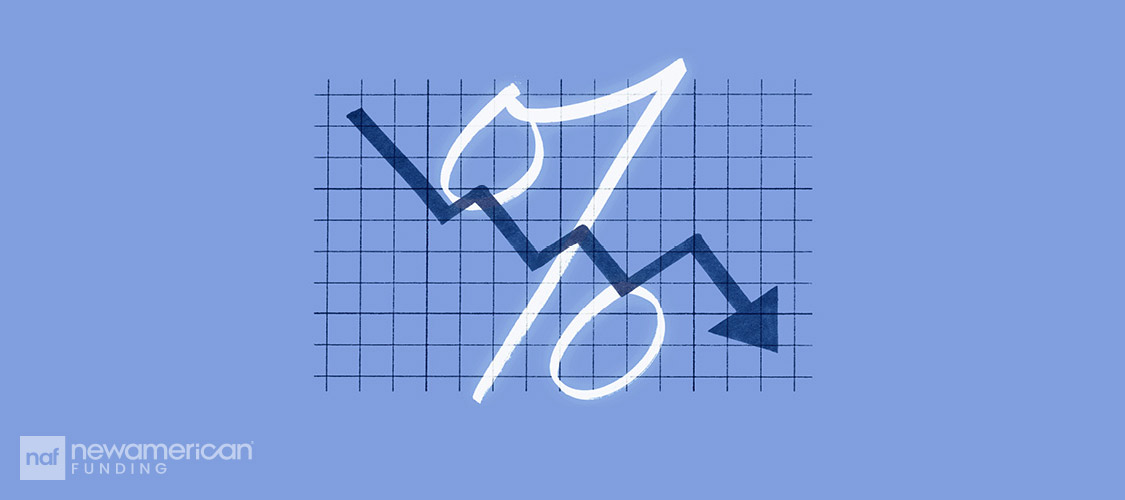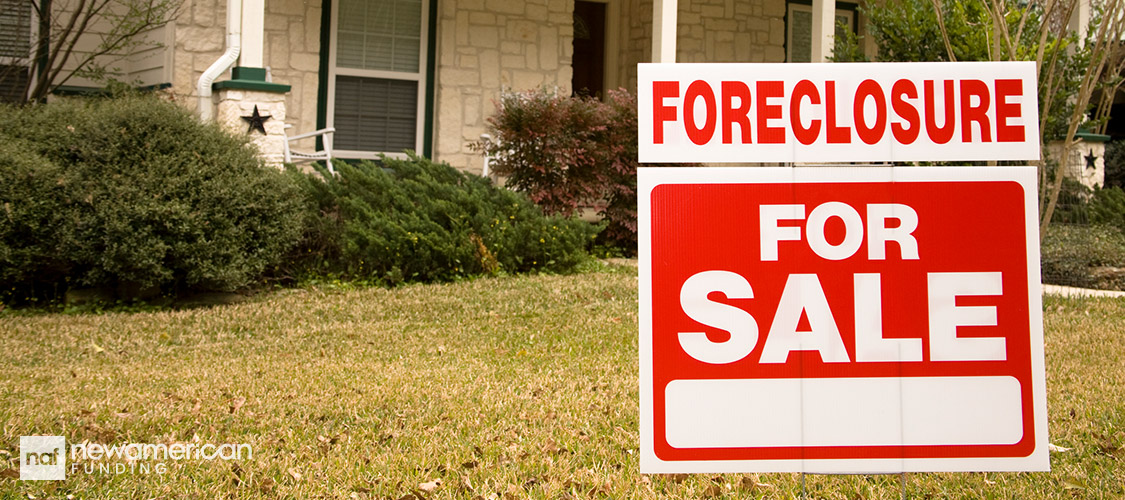Housing News
Could a Recession Help First-Time Buyers? A Downturn Could Make Purchasing a Home More Affordable
August 20, 2024
Fears of a looming recession rippled through the nation this month, rattling the markets and pushing mortgage rates down to their lowest levels in more than a year.
The news reports may have brought back unwelcome flashbacks to the Great Recession. In the late 2000s, home prices dropped sharply and foreclosure signs became a familiar sight in many neighborhoods due to the downturn.
However, the real estate experts that New American Funding spoke with placed the odds of a recession at about 50%—or less. If one does strike, they expect it will be brief and mild.
Unlike the Great Recession of about 15 years ago, an economic slump could wind up giving the housing market a bit of a boost. That's because mortgage rates would likely tumble, making buying a home more affordable.
"A mild recession might be what is needed for those homebuyers to have lower rates and more available homes for sale—just so long as a recession is going to avoid affecting their employment," said Jason Obradovich, chief investment officer at New American Funding.
Those lower rates could also incentivize homeowners, who have been reluctant to give up the low mortgage rates they secured during the pandemic, to list their properties and trade up or down into new homes.
"This might be the perfect storm to create a buyer's market, which has not existed in the last couple of years," said Obradovich. "Sellers might be more willing to sell, and builders might be willing to offer more discounts [to attract buyers.]"
How low could mortgage rates go in a recession?
Recessions typically lead to lower mortgage rates. The U.S. Federal Reserve typically fights recessions by lowering interest rates to help stimulate the economy.
When those interest rates go down, mortgage rates tend to follow.
A mild recession could result in 4% and 5% mortgage rates, said Ali Wolf, chief economist of the building consultancy Zonda.
A severe one could bring those rates down to the 3% and 4% range, she said.
"Some of those who have been on the sidelines, who haven't been able to afford to buy, may be able to do so assuming they still have a job," said Laurie Goodman, a fellow at the Urban Institute, a thinktank based in Washington, D.C.
That could mean big savings for homebuyers who may not be able to afford today's monthly mortgage payments on their dream homes. It would also be a chance for existing homeowners to refinance into lower-cost loans.
"[Lower rates] can create opportunities for households that are pretty secure in their jobs to get into the housing market at a lower cost," said Realtor.com Chief Economist Danielle Hale.
Would home prices fall in a recession?
A recession also has the potential to bring down home prices, depending on just how bad it gets.
But real estate experts don't expect prices to fall to the fire-sale levels seen during the Great Recession—if prices topple at all.
"A lot of people have this idea that home prices fall during recessionary periods," said the Urban Institute's Goodman. "There's really not much of a connection between home prices and recessionary periods, other than of course the Great Financial Crisis."
This time around, there are more buyers than there are homes for sale. The reverse was true in the late 2000s. The housing shortage is expected to keep prices at least somewhat stable, preventing double-digit-percentage price drops in much of the nation.
"I see zero to little evidence that home prices will crash given that the supply of homes for sale is a fraction of what it was before the financial crisis," said Obradovich. "It's a completely different market today."
But a recession could thin out competition for homes. If people do lose their jobs or are worried about their job security, they are less likely to buy.
"Historically, home sales have slowed during recessions because people do get concerned about making a large purchase when they don't feel secure in their jobs," said Hale.
Will there be another wave of foreclosures?
Housing experts don't anticipate another wave of foreclosures or short sales if the nation does succumb to a recession. Without that influx of cheap housing, prices aren't likely to go down significantly.
While some unemployed homeowners could be in danger of losing their properties, many economists believe the recession would be relatively short-lived.
Many homeowners have also built significant amounts of equity in their homes over the last few years. They could use that as a cushion to get them through harder times. If they did need to sell, there are still enough buyers in the market that they might even walk away from a sale with a profit.
"Historically, recessions can be challenging for the housing market. If income evaporates as people lose jobs that could be a problem for the housing market," said Realtor.com's Hale.
However, Hale added that "some people view a broader economic slowdown or a recession as an opportunity to get into the housing market."








 Smart Moves Start Here.
Smart Moves Start Here.